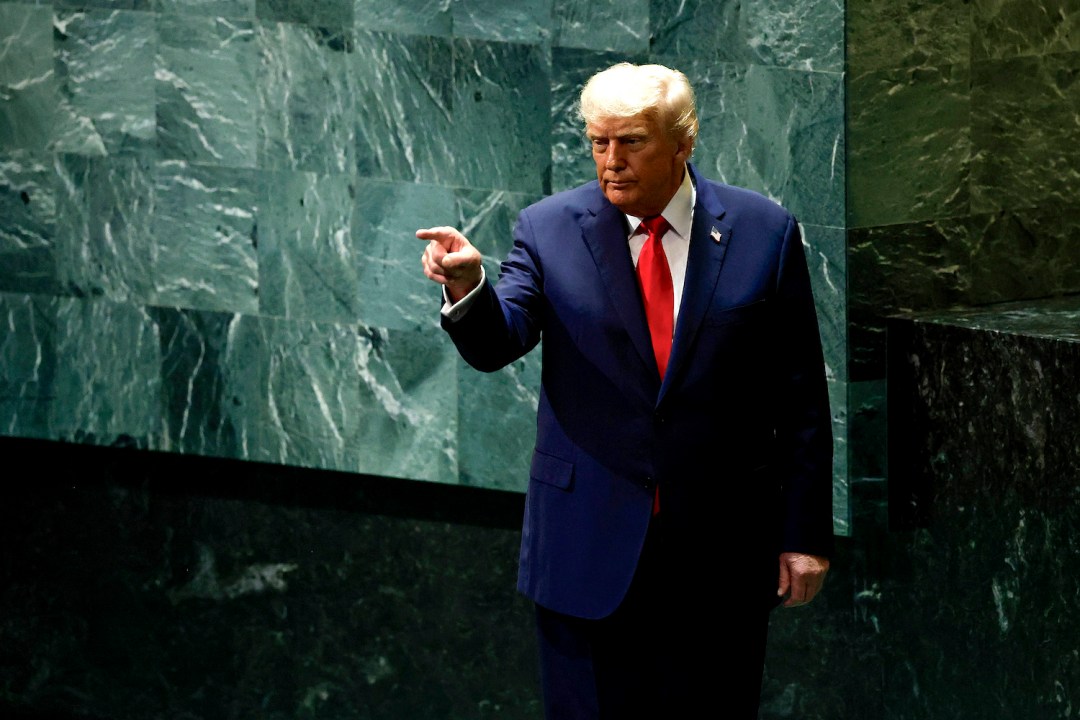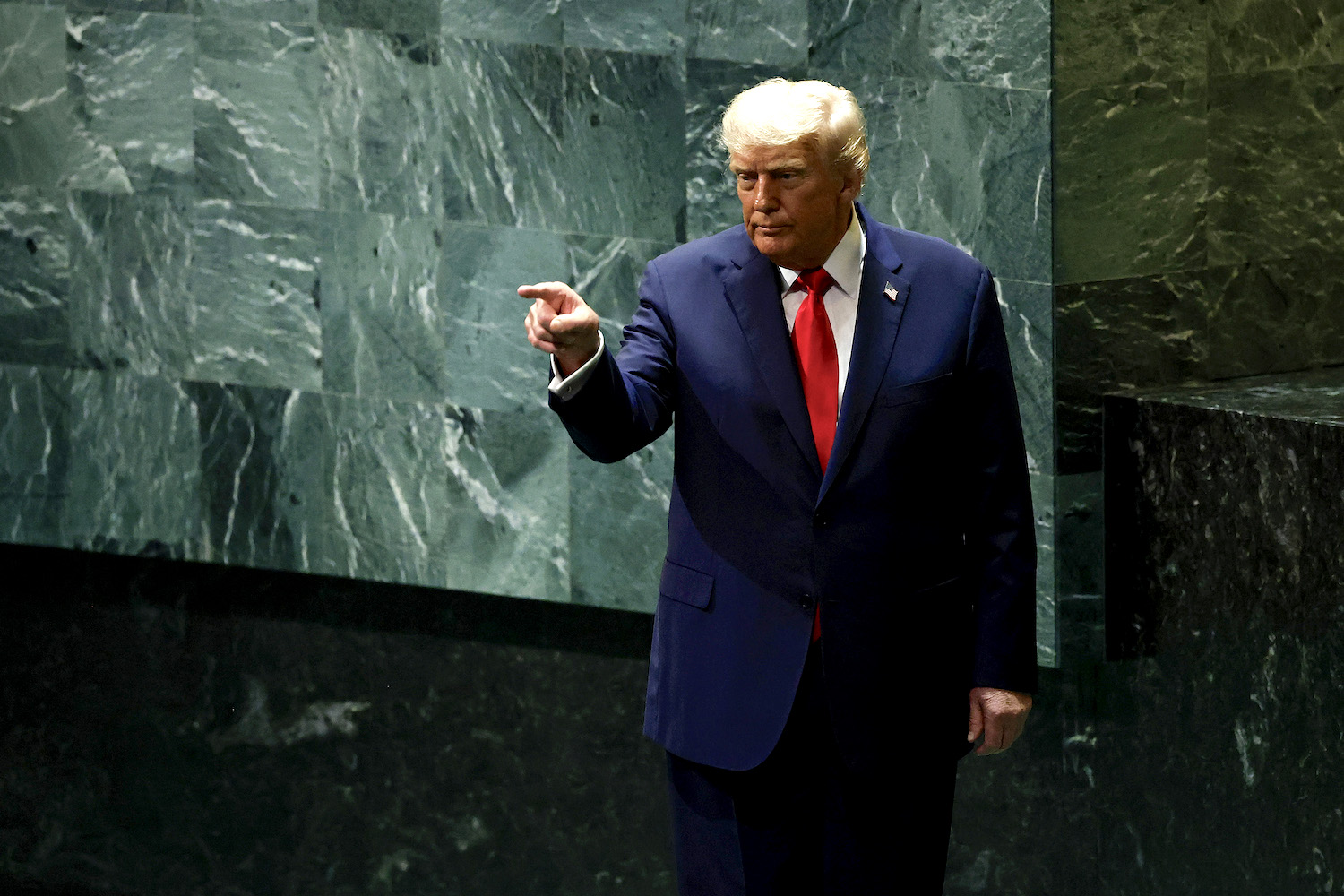Donald Trump has been doing his homework. Much has been written about Russia’s war economy, painting the picture that the military-industrial infrastructure is booming. But Trump is discovering that the war in Ukraine has wrecked Russia’s finances, and made any prospect of a straightforward return to a civilian economy unlikely.
It has taken Trump a long time, but he has come round to the view repeated endlessly by European leaders: provided military and economic support for Kyiv is maintained, Putin at some stage will be forced to call it quits. If that backing is not guaranteed, the Russian president will continue to believe that aggression pays.
The recent launching of Russian drones into Poland, Romania and over Copenhagen airport (suspected), and the flight of three Mig-31 fighter jets into Estonian airspace have shown that Putin currently thinks he’s a winner, and that he can get away with pretty much anything. Trump has seen the light here, too, by confirming that Nato should shoot Russian infiltrators down.
Trump’s lengthy Truth Social post on Ukraine came after a meeting in New York with Volodymyr Zelensky, who later expressed surprise at the change in tone and message. Even for Zelensky, Trump’s prediction that Ukraine could not only defeat the Russian invading troops but also regain all the territory it has lost may have seemed over-optimistic.
This is what Trump wrote:
After getting to know and fully understand the Ukraine/Russia Military and Economic situation and, after seeing the Economic trouble it is causing Russia, I think Ukraine, with the support of the European Union, is in a position to fight and WIN all of Ukraine back in its original form… And, who knows, maybe even go further than that! Putin and Russia are in BIG Economic trouble, and this is the time for Ukraine to act.
Quite what Trump meant by going ‘further’ is unclear, but perhaps he was thinking of Crimea, which was annexed by Putin without a fight in 2014.
Trump relies on advice not just from his appointed officials but also from people he trusts outside government. His apparent U-turn may have materialised after consulting with experts in his private contacts list.
Certainly, his revised view doesn’t gel with the opinion of Marco Rubio, his secretary of state and acting national security adviser, who made it clear that the war in Ukraine would end with a diplomatic, not a military solution. This view is largely held by the top military commanders in the US.
Three years of war have demonstrated a number of truths: Russia has failed to prove it has the military capability to crush its neighbour despite massive superiority (Trump said Russia looked like a ‘paper tiger’), and Ukraine has demonstrated a fighting spirit and an ingenious exploitation of home-grown technology to thwart Russian forces and save the country from Moscow’s subjugation.
Western support with advanced weaponry was, of course, crucial in the earlier stages of the war. But modern western tanks, for example, many of which have been destroyed in battle, play less of a role now that drones have taken over as the weapon of choice.
Trump appears to have accepted these realities and has now, effectively, given his backing for Kyiv to fight on – but only if Europe, not the US, takes the brunt of the financial responsibility. This follows Trump’s decision to sell American weapons to Europe which then passes them onto Ukraine, a clever business arrangement if ever there was one. So, it’s Europe from now on, with Trump waving the Ukrainian flag in the background.
How Putin reacts to this remarkable change in Trump’s position will be illuminating. All the indications up to this moment were that Putin was prepared to continue the conflict ad infinitum, relying on his war economy to try and seize more Ukrainian territory. So far he has taken around 19 per cent of the country, including Crimea.
However, military expenditure is now absorbing up to 8 per cent of Russia’s GDP. That cannot be sustained without having an increasingly damaging impact on the rest of the economy. With it likely that even more savage sanctions will be imposed on Moscow in the future, Putin could be forced to reassess his war prospects in Ukraine to save Russia from economic disaster.








Comments